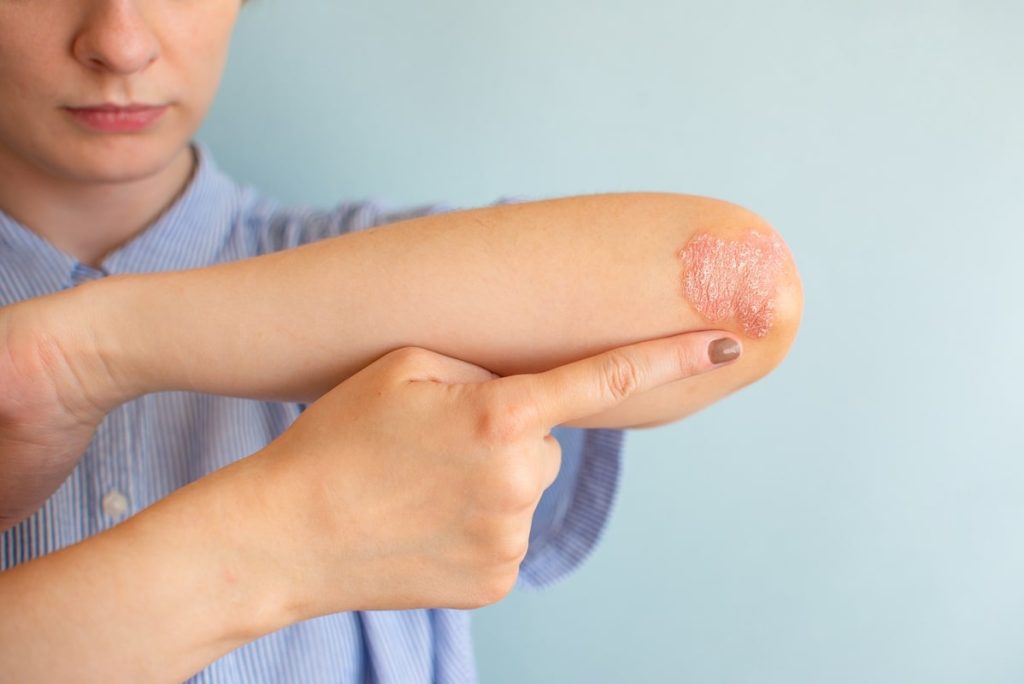Psoriasis is not contagious. Living with psoriasis is difficult. Regular follow-up and treatment should not be interrupted because it is chronic, negatively affects the quality of life, and can be accompanied by various diseases. Dermatology Specialist Assoc. Dr. Tuğba Özkök Akbulut talked about psoriasis.
What are the symptoms?
- Red, crusty, dandruff sores can be seen anywhere on the body, although they are more common on the scalp, knees, elbows, and hips.
- Pain in the joints, swelling, deformity, at rest, and lower back pain in the morning accompany one third of the patients.
- Nail changes such as pinpoint depressions on the nails, thickening under the nail, and separation of the nail plate may sometimes be the only finding.
What Causes Psoriasis?
In fact, there is no single cause of psoriasis. It occurs or is triggered by a wide variety of factors such as stress, infection, and trauma on the basis of genetic predisposition.
Is it contagious?
It is absolutely not contagious.
How is it treated?
Although the treatment varies depending on the severity and prevalence of the disease, there are various creams and medications that can be taken orally or injected at regular intervals.
“Interview is the Killer of Justice!”
With today's medical treatments, the symptoms and progression of the disease can be stopped. What needs to be considered here is to receive treatment services from dermatology physicians. Psychosocial support in psoriasis contributes greatly to the healing process.
5 Points to Consider in Nutrition
- They should especially stay away from three white ingredients that have the potential to cause weight gain (white flour, sugar, salt).
- A Mediterranean diet style diet, which includes vegetables and protein instead of processed foods, is more suitable.
- You should not eat after 20.00 in the evening at the latest.
- Fruit should not be eaten on a full stomach (which causes fatty liver).
- Drinking at least 2-2.5 liters of water during the day is of great importance for the healthy functioning of the body.
(BSHA-Science and Health News Agency)
